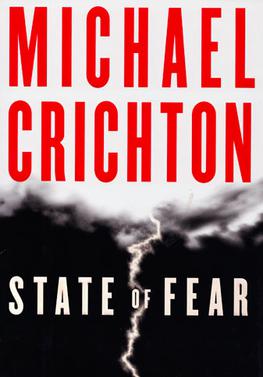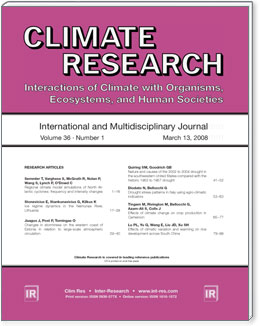| Author | Chris Mooney |
|---|---|
Publication date | 2007 |
| ISBN | 9780151012879 |
Storm World: Hurricanes, Politics, and the Battle over Global Warming is a 2007 book by Chris Mooney. Mooney discusses tensions between two different approaches to analyzing global warming and its effect on hurricanes.
After witnessing the devastation of his mothers house in Hurricane Katrina Mooney was concerned that government policy failed to consider worst-case scenarios when planning for the future even after that disaster. He explores whether global warming will affect hurricanes in general even if it cannot explain the specifics of any individual storm. Mooney found there were two camps in storm research one that felt the field should be based on data and another looking into deductions based on theories derived from physics. Surrounding this divide are politics, personalities and the drama of powerful storms. The question of the effect of global warming on storms and the difficulty reaching conclusions intensified the conflict. Mooney renders this into an accessible and compelling narrative with vivid portrayals of the scientists, accounts of new discoveries and their acceptance or denial by scientists and politicians. The integration of both research methods by some scientists gives Mooney hope and he concludes that in order to be effective scientists must be skilled communicators. [1]
Storm World chronicles the history of the field of storm research from "the American Storm Controversy" a running disagreement in the 1800s between William Redfield whose observations led him to conclude that hurricanes were whirlwinds and James Pollard Espy who theorized convection, with water rising up a chimney, was the cause of hurricanes. It covers the clash of ideas in the 1950s between observationalists including Robert Simpson comparing hurricanes to "heat engines" and theorists and early computer modelers who advocated a mathematical theory Conditional Instability of the Second Kind (CISK). These early disputes set the stage for the current debate. Mooney details William Gray's changing role from groundbreaking theorist to climate change denying anti-theorist set against the background of the increasing public spotlight and urgency to develop a working understanding of storms and global warming in the aftermath of Hurricane Katrina. [2]
Lisa Margonelli, reviewing Storm World for the New York Times , describes it as "a well-researched, nuanced book that suffers from poor organization and a lack of pizazz." [2]
In a mixed review in the Los Angeles Times Thomas Hayden wrote that Mooney deftly handled the complexity of the questions surrounding global warming and its effect on hurricanes. He praised Mooney as a writer and the timeliness of publication while pointing to continuity problems, a lack of integration and repetition. In particular he describes a later chapter on the most recent developments in hurricane and climate science as "tacked on just before the conclusion, so we learn important matters of substance after we've heard all the arguments." While saying that, "Mooney has a talent for humanizing the science and scientists" he criticizes the author for focusing too much on the over the top behavior of William Gray rather than presenting other researchers critiques of the subject. He continues noting Mooney's research is apparent throughout and that, "he does a fine job of sifting through complexities and presenting the science in an engaging and readable package." Hayden concludes, "Mooney catches real science in the act and, in so doing, weaves a story as intriguing as it is important." [3]
It was selected as one of the best non-fiction books of year in 2007 by Publishers Weekly . [4]
Mooney, Chris C. (2007). Storm World: Hurricanes, Politics, and the Battle over Global Warming . Houghton Mifflin Harcourt. ISBN 9780151012879.
The politicization of science for political gain occurs when government, business, or advocacy groups use legal or economic pressure to influence the findings of scientific research or the way it is disseminated, reported or interpreted. The politicization of science may also negatively affect academic and scientific freedom, and as a result it is considered taboo to mix politics with science. Historically, groups have conducted various campaigns to promote their interests, many times in defiance of scientific consensus, and in an effort to manipulate public policy.

James Edward Hansen is an American adjunct professor directing the Program on Climate Science, Awareness and Solutions of the Earth Institute at Columbia University. He is best known for his research in climatology, his 1988 Congressional testimony on climate change that helped raise broad awareness of global warming, and his advocacy of action to avoid dangerous climate change. In recent years, he has become a climate activist to mitigate the effects of global warming, on a few occasions leading to his arrest.

Kevin Edward Trenberth worked as a climate scientist in the Climate Analysis Section at the US National Center for Atmospheric Research (NCAR). He was a lead author of the 1995, 2001 and 2007 IPCC assessment reports. He also played major roles in the World Climate Research Programme (WCRP), for example in its Tropical Oceans Global Atmosphere program (TOGA), the Climate Variability and Predictability (CLIVAR) program, and the Global Energy and Water Exchanges (GEWEX) project.

The George C. Marshall Institute (GMI) was a nonprofit conservative think tank in the United States. It was established in 1984 with a focus on science and public policy issues and had an initial focus in defense policy. Starting in the late 1980s, the institute advocated for views in line with environmental skepticism, most notably climate change denial. The think tank received extensive financial support from the fossil fuel industry.

William Mason Gray was an American meteorologist who was emeritus professor of atmospheric science at Colorado State University (CSU), and the head of the Tropical Meteorology Project at CSU's Department of Atmospheric Sciences. He is widely regarded as a pioneer in the science of tropical cyclone forecasting and one of the world's leading experts on tropical storms. After retiring as a faculty member at CSU in 2005, Gray remained actively involved in both climate change and tropical cyclone research until his death.

State of Fear is a 2004 techno-thriller novel by Michael Crichton, his fourteenth under his own name and twenty-fourth overall, in which eco-terrorists plot mass murder to publicize the danger of global warming.

Roger A. Pielke Sr. is an American meteorologist with interests in climate variability and climate change, environmental vulnerability, numerical modeling, atmospheric dynamics, land/ocean – atmosphere interactions, and large eddy/turbulent boundary layer modeling. He particularly focuses on mesoscale weather and climate processes but also investigates on the global, regional, and microscale.

Christopher Cole Mooney is an American journalist and author of four books including The Republican War on Science (2005). Mooney's writing focuses on subjects such as climate change denialism and creationism in public schools, and he has been described as "one of the few journalists in the country who specialize in the now dangerous intersection of science and politics." In 2020 he was awarded a Pulitzer Prize for a series of articles on global warming published in The Washington Post.

Joseph J. Romm is an American researcher, author, editor, physicist and climate expert, who advocates reducing greenhouse gas emissions to limit global warming and increasing energy security through energy efficiency and green energy technologies. Romm is a Fellow of the American Association for the Advancement of Science. In 2009, Rolling Stone magazine named Romm to its list of "100 People Who Are Changing America", and Time magazine named him one of its "Heroes of the Environment (2009)", calling him "The Web's most influential climate-change blogger".

Christopher William "Chris" Landsea is an American meteorologist, formerly a research meteorologist with the Hurricane Research Division of the Atlantic Oceanographic and Meteorological Laboratory at NOAA, and now the Science and Operations Officer at the National Hurricane Center. He is a member of the American Geophysical Union and the American Meteorological Society.

The Republican War on Science is a 2005 book by Chris Mooney, an American journalist who focuses on the politics of science policy. In the book, Mooney discusses the Republican Party leadership's stance on science, and in particular that of the George W. Bush administration, with regard to issues such as climate change denialism, intelligent design, bioethics, alternative medicine, pollution, separation of church and state, and the government funding of education, research, and environmental protection. The book argues that the administration regularly distorted and/or suppressed scientific research to further its own political aims.
Christopher Rhodes de Freitas was a New Zealand climate scientist. He was an associate professor in the School of Environment at the University of Auckland.

The Politically Incorrect Guide to Science is a 2005 book by conservative journalist Tom Bethell, in which the author makes questionable and highly politicized claims on subjects such as HIV/AIDS, intelligent design, and the relationship between science and Christianity. It was published by Regnery Publishing.

Stanley B. Goldenberg is a meteorologist with NOAA/AOML's Hurricane Research Division in Miami, Florida.

Heaven and Earth: Global Warming – The Missing Science is a popular science book published in 2009 and written by Australian geologist, professor of mining geology at the University of Adelaide, and mining company director Ian Plimer. It disputes the scientific consensus on climate change, including the view that global warming is "very likely due to the observed increase in anthropogenic (man-made) greenhouse gas concentrations" and asserts that the debate is being driven by what the author regards as irrational and unscientific elements.

Climate Research is a peer-reviewed scientific journal published by the Inter-Research Science Center and best known to the general public for its 2003 publication of a controversial paper. The journal was established in 1990 and covers all aspects of the interactions of climate with organisms, ecosystems, and human societies. Its founder and long time publisher was marine biologist Otto Kinne.
The Soon and Baliunas controversy involved the publication in 2003 of a review study titled Proxy climatic and environmental changes of the past 1000 years, written by aerospace engineer Willie Soon and astronomer Sallie Baliunas and published in the journal Climate Research. In the review, the authors expressed disagreement with the hockey stick graph and argued that historical temperature changes were related to solar variation rather than greenhouse gas emissions as was the position of the Intergovernmental Panel on Climate Change and other researchers. The publication was quickly taken up by the George W. Bush administration as a basis for amending the first Environmental Protection Agency's Report on the Environment.
Watts Up With That? (WUWT) is a blog promoting climate change denial that was created by Anthony Watts in 2006.

Climate change affects tropical cyclones in a variety of ways: an intensification of rainfall and wind speed, an increase in the frequency of very intense storms and a poleward extension of where the cyclones reach maximum intensity are among the consequences of human-induced climate change. Tropical cyclones use warm, moist air as their source of energy or fuel. As climate change is warming ocean temperatures, there is potentially more of this fuel available.
In late October 2012, the post-tropical cyclone once known as Hurricane Sandy made landfall in New Jersey. By the time it made landfall, it had merged with other storm systems. Though no longer a hurricane, the combined storm caused over $50 billion in damages and cost over 100 lives in the United States.